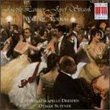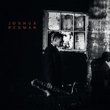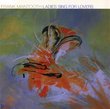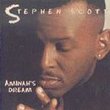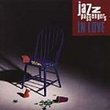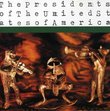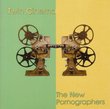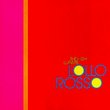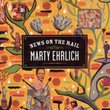| All Artists: Alan Pasqua, Dave Holland, Michael Brecker, Jack Dejohnette, John Clark, Willie Olenick Title: Milagro Members Wishing: 1 Total Copies: 0 Label: Postcards Original Release Date: 9/26/1994 Re-Release Date: 10/13/2009 Genres: Jazz, Pop Styles: Modern Postbebop, Bebop Number of Discs: 1 SwapaCD Credits: 1 UPC: 782737100221 |
Search - Alan Pasqua, Dave Holland, Michael Brecker :: Milagro
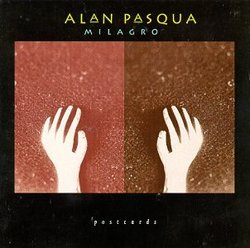 | Alan Pasqua, Dave Holland, Michael Brecker Milagro Genres: Jazz, Pop
Milagro is pianist Alan Pasqua's first album as a leader. The musical promise he displayed in The Tony Williams Lifetime, Santana, and George Russell's Living Time Orchestra has been fully realized on this inventive disc, ... more » |
Larger Image |
CD DetailsSynopsis
Album Description Milagro is pianist Alan Pasqua's first album as a leader. The musical promise he displayed in The Tony Williams Lifetime, Santana, and George Russell's Living Time Orchestra has been fully realized on this inventive disc, aided and abetted by cohorts Holland, DeJohnette, and Brecker, and by five of New York's first-call brass and woodwind session players. Pasqua's playing is both melodic and hard-driving and, on this album, his gifts as an arranger are abundantly featured to great effect. "I've always felt that the instrumentation of a piano trio presents a perfect musical balance," says pianist/composer Alan Pasqua speaking of his 1994 debut album as a leader, "so in Milagro I wanted to use that as a common thread, adding to it with a tenor sax and with a larger horn section where it fit the individual pieces of music. Some of the compositions, such as "Acoma" and "A Sleeping Child," are perfect as trios -- the piano, bass, and drums fill the whole canvas -- but in others the horns add a fuller, darker colored texture, giving the listeners a chance to hear a greater diversity of music." On Milagro, the core trio consists of Dave Holland and Jack DeJohnette, as well as Pasqua. "Dave was the anchor of the trio," explains Pasqua, "while Jack was more of a free spirit, a color painter. Yet both of them allowed a lot of space -- space for me, space to draw the listeners into the music." They are joined by Michael Brecker on tenor sax on "Rio Grande," "The Law of Diminishing Returns," and "L'Inverno," and by five of New York's first-call brass and woodwind session players on "Rio Grande," "Twilight," "Milagro," and "Heartland." Together, they have created a disc that is both melodic and hard-driving, and that also, via the horn section, introduces Mr. Pasqua's profound arranging talents. " 'Milagro' means 'miracle,' " notes Pasqua, "and much of this disc is really about the miracle of life and our natural environment." He started working on the compositions about two to three years earlier, after forming a working trio in Los Angeles with drummer Peter Erskine and bassist John Patitucci. "I began to have a strong desire to write and play original compositions, not just jazz standards," he continues, "and their interpretations of my music gave me further energy to do more." Similar CDs
Similarly Requested CDs
|
CD ReviewsOne of the most beautiful jazz albums ever recorded Jan P. Dennis | Monument, CO USA | 07/04/2003 (5 out of 5 stars) "Is there such a thing as "Southwest Jazz"? No, there isn't, but if there was, it might sound like this. At least three of the songs, "Acoma," "Rio Grande," and "Milagro," have specific Southwest references in their titles. "Acoma," of course, refers to Acoma Pueblo, one of a few dozen Native American Pueblos still functioning. Spectacularly set on a mesa in Northern New Mexico, it is certainly worth a side trip off US 40 to visit. Of the three Southwestern pieces, this one strikes me as the most evocative: The trio of Pasqua, Holland, and DeJohnette brilliantly conjure up both the big sky feel and the underlying sadness of the Indians' plight, deftly eschewing mawkishness. "Rio Grande" features the full complement of players, the core trio plus Michael Brecker on tenor sax and a brass choir that very subtly and effectively provides telling fills. Since this isn't really "program music"--where abstract notes and beats strive to conjure up landscapes and moods, such as Sestina's famous "The Moldau"--there's no real correspondence between titles and realities. Nevertheless, the Rio Grande is a magnificent river, especially as it flows through middle and southern Colorado and northern New Mexico, which is the feel of it that I get here. Thus the music, like the river, is leisurely flowing, meditative, and somewhat sinuous. "Milagro," the title cut, likely an intentional reference to Robert Redford's sophomore directorial effort, "The Milagro Beanfield War," which takes place in New Mexico, solidifies the Southwest jazz sensibility. Delicacy has been a word used to describe Pasqua's music, but what it really is is delicacy with underlying strength. That's the definite feeling of this, for me, the strongest cut on the disc. Opening with a very attractive dancing melodic piano line, the piece morphs into a showcase for the full ensemble at their most evocative and mysterious. There's a really cool vibe here of triumph prevailing out of real struggle. Really, this is sensational music--vibrant, mythic, healing.Even the non-specifically Southwest titled songs still maintain the vibe. "A Sleeping Child," a gentle waltz, evokes the kind of rural sensibility one might encounter in Michael McGarrity's fine Southwest mystery novels featuring New Mexican native Kevin Kerney. "The Law of Diminishing Returns," certainly something the unspoiled Southwest must deal with as it faces increasing encroachment and development by Easterners, Texans, and Californians, is brilliantly realized musically with the clash of sensibilities between Brecker's assertive tenor and the trio's more traditionalist sensibilities. As one who lives in Monument, Colorado, a Colorado Front Range town, I can identify with the culture clash that development vs. preservation brings. Twilight, a magical time of day in the Southwest, is wonderfully brought to life in this eponymous cut. One thinks more naturally of Kansas as the heartland of America, but a case can be made for the Four Corners as the nation's true heartland, with its mixture of Native American, Spanish, and Anglo cultures. "Heartland" the song gently evokes Middle America (no irony intended) as a place of integrality, assurance, and hope.Again, this may be THE most beautiful jazz disc ever recorded. Holland and DeJohnette, of course, are monster players, and they give their absolute best to make this a very special and appealing jazz recording."
|

 Track Listings (10) - Disc #1
Track Listings (10) - Disc #1
